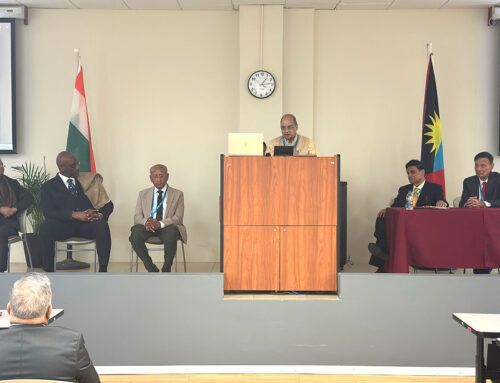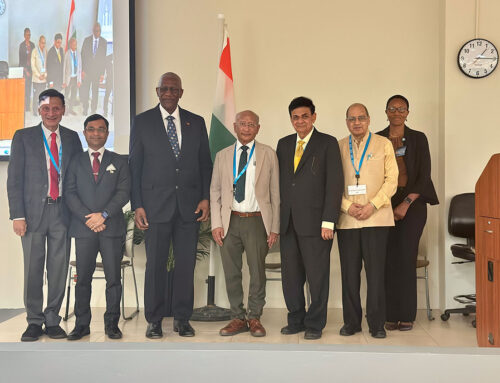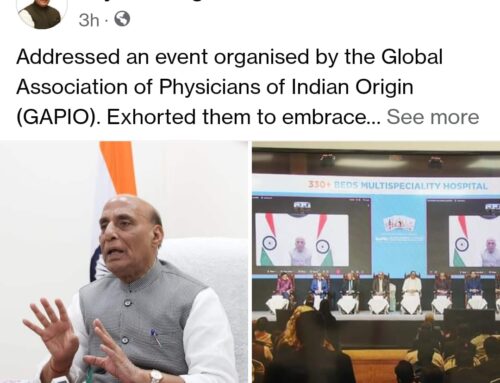
As a cardiologist, entrepreneur and leader, Dr Prathap C Reddy, Chairman, Apollo Hospitals Group is an inspiration for many.
In an exclusive interview with Dhirendra Pratap Singh, Dr Reddy talks about his journey as a healthcare entrepreneur, his latest initiative—the GAPIO and the key issues that affect the Indian health industry today. Excerpts:
“To bring about a change, one must be able to give others, what he gives himself and his kith and kin. Naturally, you would want to give best healthcare services to your kith and kin and this is how we evolved ourselves”
How has the healthcare scenario in India transformed over the years?
The healthcare services in India, today, are as good as anywhere in the world, and we must be proud of this fact. Moreover, healthcare in India is very much affordable. We are doing very well in medical tourism, and I have no doubt that India would be able to become a global healthcare destination, in future. We have the best doctors, the best nurses, the best technologies and the best managers coupled with great prices. I think we have the best talent in the country, not only in Apollo, but in other institutes, as well. These specialists are proving the best healthcare services in the world. I believe that an Indian skill is second to none.
What prompted you to start Apollo like world-class affordable healthcare facility in India?
When I came back from the US, India did not have any affordable and quality heart surgical programmes. So, I used to send patients who could afford these services to the US, mostly to Denton Cooley in Houston. During that time, I lost a young man who couldn’t afford to pay US $ 50,000 to go to Houston. It was then that I realised that if Indian doctors and engineers are par excellence overseas, then we must have these facilities available here, as well. That was the birth of Apollo concept and today, I am glad that we are equivalent to any other institute in the world. We have done 94,0000 heart surgeries and our success rate is 99 percent. No hospital in world has such results.
To bring about a change, one must be able to give others, what he gives himself and his kith and kin. Naturally, you would want to give best healthcare services to your kith and kin and this is how we evolved ourselves. We are not only the India’s best but also best anywhere in the world.
As the Chairman of Apollo Hospitals Group, what are the major challenges in running hospitals in India and what are the best ways to overcome these challenges?
I believe that to be able to excel at something one must have excellent leadership qualities. The healthcare field is as challenging as any other economic activity, perhaps much more challenging because multiple people are involved in this industry. I think that playing the leadership role in a hospital is much bigger. A hospital CEO must be powerful and at the same time have a heart.
Is the public-private partnership model workable in the health sector? What do you think are the limitations?
Apollo Hospital in Delhi is perhaps one of the best hospitals in the world. Apollo Hospital in Delhi was set up during the time Mr Rajiv Gandhi was the Prime Minister of India, in a joint venture with the government, which co-invested in setting up Apollo. The hospital, today, is the pride of our country.
Apollo hospital in Bilaspur is also working on the PPP model. Chhattisgarh believes that it is the only hospital providing specialty care in the entire region of Chhattisgarh. Rahul Gandhi Hospital in Raichur, Karnataka is also based on a PPP model. So, I think the PPP model works and will sustain and grow.
“Indian Doctor today stands tall. It is time for the Indian doctor to influence not only the health of individuals and communities but, global health”
More than 27 percent people in India live below the poverty line and have no access to basic healthcare facilities. In such cases scenario, what should be the role of government as well as healthcare leaders like you?
There are two ways to address this—to assess what is the situation and to outline the measures that are required to obviate this. In remote areas, my concept of Reach Hospital is working towards the goal of reaching people in the remote areas, districts and tier 2 and tier 3 cities. India was a very rich country in the 17th century and its time now to bounce back.
What is your opinion about medical training in India?
India needs to do a lot in this field. There is a huge divide, as far as medical training in India is concerned.
There are both good and not so good institutes in the country. I think that the Medical Council of India (MCI) is doing a lot in this field now and we must compliment them. However, a tremendous amount of work still needs to be done. The MCI is transforming medical education in country in due course of time.
What are your views on preventive healthcare in India?
I think preventive healthcare is a crucial issue. India is still facing the so called infectious diseases burden, tuberculosis is reappearing and life style diseases are catching up. We are the diabetic capital, the heart capital and the cancer capital of world. Indians, today, are getting heart attacks at a very young age. There is no way to tackle this than to attack the problem. Every single family must take a pledge to leave smoking, do some exercise and do yoga and
meditation. This will control diabetes and hypertension and incidentally cancer to the master level. These are the preventive measure that everybody must take.
You have initiated the Global Association of Physicians of Indian Origin (GAPIO). What are its objectives and vision?
It is estimated that there are 1.2 million physicians of Indian origin working not only in India, but also, in most of the countries around the world. This strong Diaspora of Indian doctors needs a common professional platform. There is a need for greater visibility and cohesion of these physicians. It is with these objectives that the society, Global Association of Physicians of Indian Origin (GAPIO) has been formed.
GAPIO has the vision of improving health globally. A Google search for ‘Indian Doctor’ yields 35.7 million results in 0.1 seconds. ‘Indian Doctor’ today, stands tall. It is time for the Indian doctor to influence not only the health of individuals and communities but, global health. There is a plethora of physicians of Indian origin working globally who have their roots in India. Their combined intellectual and technical strength can also be a vital force in the development of the Indian healthcare sector.
How GAPIO will work for quality healthcare with affordable access for all?
Indian physicians both in India and abroad excel in their fields and have a passion to provide quality care. GAPIO will bring their collective power on one platform to help shape healthcare in underserved areas and work towards quality healthcare for all, especially in India. The society would work towards providing a platform to empower physicians of Indian origin to achieve highest international standards and act towards engaging with policy makers in order to highlight the challenges faced in the healthcare system not only in India but across the globe. It will serve as a forum and an advocate for the clinicians to mobilise their collective experience and expertise to help address global health issues with focus on India, assisting development of quality health care with affordable access for all. The most important thing is that how a doctor could work towards inclusiveness and take healthcare to the last mile. It is also important to involve them with society. Doctors still work very hard and it must be able to be visible to the society.






